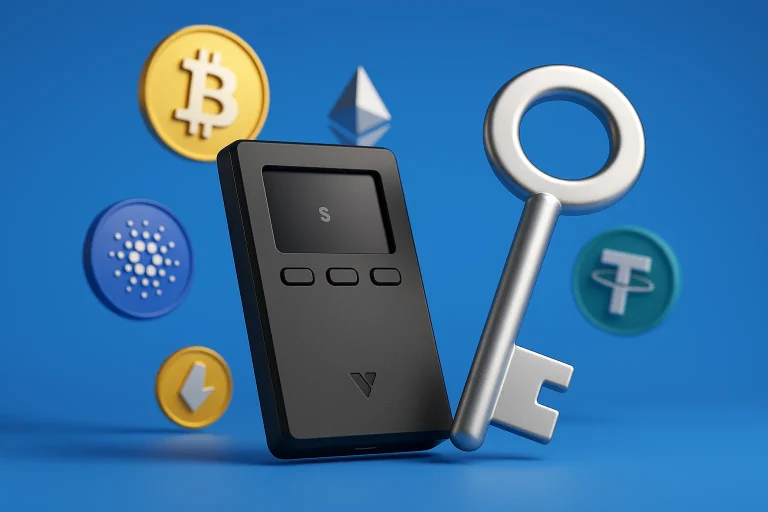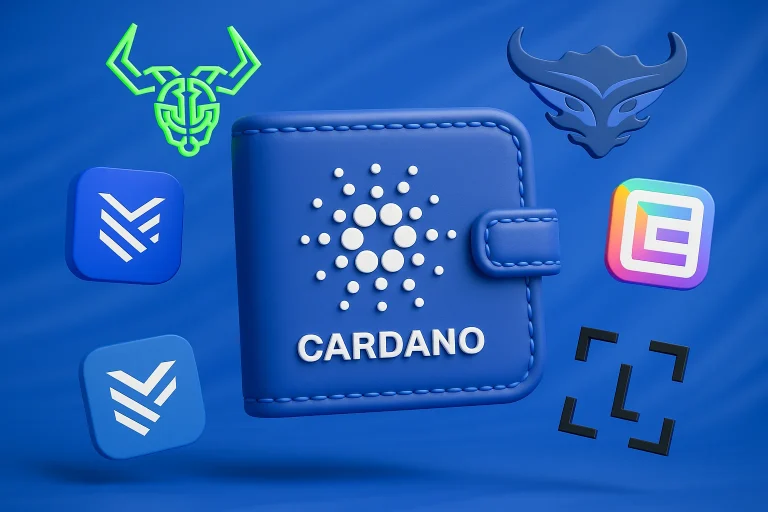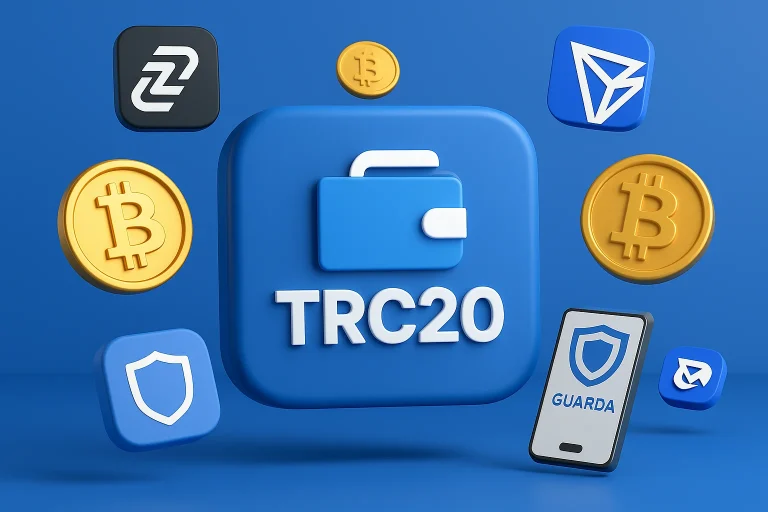Are you frustrated with the way traditional exchanges operate? Yeah, we too. High fees, geographic restrictions, and custody risks have led many traders to question whether centralized platforms remain viable in 2026.
The challenge isn’t just about access, but it’s about control. Even with efficient trade execution and advanced trading tools, you still rely on third parties to hold your assets and approve transactions. For traders who value self-custody and on-chain transparency, that’s a serious trade-off.
That’s where DEX crypto exchanges come in. Built on networks like Binance Smart Chain, these platforms have matured to rival their centralized counterparts in performance, all while giving users complete ownership of their funds. However, before using a decentralized exchange, it’s worth understanding whether your crypto is stored in a custodial or non-custodial wallet, since this choice directly impacts who controls your private keys.
If you’re looking for the best DEX crypto exchanges this year, this guide will walk you through the top options worth your attention. Let’s dive in!
Table of contents
The Best Decentralized Exchanges (DEXs)
Quick Overview | |
|---|---|
| Uniswap | Best for: Overall performance & liquidity Chains: 10+ Avg. Fee: 0.30% (mainnet); lower on L2s Volume (24h): ~$1.5B Cross-Chain: Yes, via UniswapX |
| PancakeSwap | Best for: Yield farming & multichain DeFi Chains: 5+ Avg. Fee: 0.25% (BSC); varies by chain Volume (24h): ~$720M Cross-Chain: Yes |
| Raydium | Best for: Solana-native AMM + Order Book trading Chains: Solana only Avg. Fee: ~0.25% Volume (24h): ~$155M Cross-Chain: Not native |
| Jupiter | Best for: Solana DEX aggregation & automation Chains: Solana only Avg. Fee: Aggregator-dependent (~0.1–0.3%) Volume (24h): ~$633M Cross-Chain: Not native |
| Velodrome | Best for: Incentivized Liquidity & Governance on Optimism Chains: Optimism Avg. Fee: 0.02%–0.05% Volume (24h): ~$23M Cross-Chain: Not native |
Claim your signup bonuses using our Bitget referral code before you start trading.
1. Uniswap, Best Overall Decentralized Exchange

Uniswap, launched in November 2018 by Hayden Adams, is widely regarded as the benchmark for decentralized exchanges. Built on Ethereum and leveraging an automated market maker (AMM) protocol, it continues to lead the DEX space in terms of trading volume, liquidity depth, and decentralization.
It remains our top choice for 2026 due to its reliability, scalability, and ongoing innovation. Users across platforms like Reddit consistently praise Uniswap for its stable performance, secure smart contracts, and integration with Layer 2 networks such as Arbitrum and Optimism, significantly reducing gas fees. The release of UniswapX in 2023 also expanded its capabilities by enabling cross-chain token swaps, a major improvement for users managing multi-chain portfolios.
We tested support through Discord and GitHub. Response times were okay, but slower during high traffic periods.
The platform offers a streamlined, intuitive interface that supports various non-custodial wallets, including MetaMask, Coinbase Wallet, and Ledger devices. Whether you’re trading popular assets or newly listed tokens, Uniswap’s vast ERC-20 support and fast transaction execution stand out. It’s also governed by holders of the UNI token, making it one of the most transparent and community-driven platforms available.
Key Features of Uniswap | |
|---|---|
| Automated Market Maker (AMM) Protocol | Trades are executed without traditional order books, using liquidity pools instead. |
| Cross-Chain Swaps with UniswapX | Supports trading assets across multiple chains without centralized bridges. |
| Layer 2 Integration | Operates on networks like Arbitrum and Optimism for lower fees and faster transactions. |
| Wide Token Support | Thousands of ERC-20 tokens and bridged assets are available for swap. |
| Non-Custodial by Design | Users retain full control of their private keys; no sign-ups or centralized account management. |
| Wallet Compatibility | Seamlessly integrates with MetaMask, WalletConnect, Coinbase Wallet, and Ledger devices. |
| Slippage and Fee Customization | Allows advanced settings for slippage tolerance and transaction deadlines. |
| Decentralized Governance | Powered by the UNI token, enabling community proposals and protocol upgrades. |
2. PancakeSwap, Best for Multichain DeFi and Yield Farming

Launched in September 2020 by anonymous developers, PancakeSwap runs on the BNB Smart Chain and has become one of the most versatile multichain DEX platforms. Its latest version, PancakeSwap Infinity (formerly PancakeSwap v4), introduces a more efficient liquidity model with customizable pool logic and multiple market maker types.
Redditors consistently compliment PancakeSwap for its low trading fees, wide asset support, and expanding multichain capabilities (supporting Ethereum, Aptos, Arbitrum, and more). Infinity’s introduction of automated Hooks, similar to Uniswap V4, offers more granular liquidity control, without compromising the platform’s intuitive interface.
PancakeSwap has passed audits (by CertiK and PeckShield), operates bug bounty programs, and uses timelocks and multisigs on governance. However, it still depends on BNB Smart Chain, which has seen isolated chain-wide issues.
Regarding their customer support, their Telegram channels were active and helpful, and the documentation was clear and beginner-friendly.
We recommend PancakeSwap if you’re looking for a DEX beyond essential swaps. It’s attractive for DeFi power users who want capital efficiency, flexible staking, and access to new project launches in one ecosystem.
Key Features of PancakeSwap | |
|---|---|
| Multichain DEX | Supports BNB Smart Chain, Ethereum, zkSync, Arbitrum, Aptos, and others. |
| AMM + Order Book Model (v4) | Allows customizable liquidity provisioning with multiple pool types. |
| Yield Farming and Syrup Pools | Stake LP tokens or native CAKE for rewards. |
| Prediction Market | Bet on BNB price movements for short-term gains. |
| Lottery and Gamification | Daily draws and reward-based games to engage the community. |
| NFT Marketplace | Buy, sell, and trade BNB Chain-based NFTs directly on the platform. |
3. Raydium, Best for Solana Traders Who Want AMM + Order Book

Raydium was launched in early 2021 as a DEX and AMM built on the Solana blockchain. Created by the pseudonymous team behind AlphaRay, Raydium uniquely integrates AMM liquidity with Serum’s central limit order book, offering deeper liquidity and better price discovery than most standalone DEXs.
Raydium earns high marks on Reddit for its trading speed, low slippage, and integration with Solana-native tools. It also includes LaunchLab, a launchpad that’s helped onboard multiple high-performing Solana projects. Its hybrid model (AMM + CLOB) is why many prefer it over basic Solana DEXs.
Raydium is non-custodial and integrates directly with wallets like Phantom and Solflare. While it hasn’t faced major protocol-level breaches, Solana’s network-wide outages have impacted availability.
Related to the customer support team, their Discord support helped with most issues.
We recommend Raydium for traders who want fast swaps, low fees, and smart liquidity routing, especially if you’re already active in the Solana ecosystem.
Key Features of Raydium | |
|---|---|
| AMM + Serum Integration | Combines liquidity pools with a full order book for efficient price discovery. |
| AcceleRaytor Launchpad | IDO platform for launching Solana-based projects. |
| Dual Yield Farms | Earn tokens from both Raydium and project partners. |
| Real-Time Charting | Integrated TradingView-style UI with order book depth. |
| Pool Creation Interface | Easy LP creation and staking directly from the dashboard. |
| Wallet Integrations | Supports Phantom, Solflare, Ledger, and more for non-custodial access. |
4. Jupiter, Best for Solana Swap Aggregation and Automation

Jupiter went live in 2021 and quickly became Solana’s top decentralized aggregator. Created by Meow and team, its routing engine scans multiple Solana DEXs in real-time to get users the best rates on any swap. Jupiter V2, launched in late 2023, revamped the interface and added limit orders, DCA tools, and even perpetual futures.
On Reddit and X, Jupiter is often praised for its intuitive UI, ultra-fast swaps, and constant innovation. Its commitment to decentralization was cemented in early 2024 with the launch of the JUP governance token, distributed through a widely discussed airdrop.
Regarding security, Jupiter doesn’t custody funds; it routes swaps through audited Solana protocols. While the team has remained transparent about bugs and fixes, users must remain cautious due to Solana’s broader ecosystem volatility and smart contract risks.
We experienced limited customer support. We had to rely on community forums, FAQs, and much trial and error.
We recommend Jupiter if you’re after maximum efficiency in token swapping on Solana. It’s perfect for traders who want a streamlined UI but powerful features behind the scenes.
Key Features of Jupiter | |
|---|---|
| DEX Aggregator | Routes trades through Orca, Raydium, Meteora, Lifinity, and other Solana DEXs. |
| DCA & Limit Orders | Set recurring buys or sells at target prices, rare among DEXs. |
| Perpetual Integration | Access to on-chain derivatives and leverage trading tools. |
| Auto-Routing Optimizer | Slippage control and best-price execution are baked into each trade. |
| Bridge and Token Explorer | Aggregates bridging routes and tracks token contracts for safe trading. |
| It integrates with wallets like Phantom | Easy UX and permissionless access are available through Solana-native wallets. |
5. Velodrome, Best for Incentivized Liquidity and Governance on Optimism

Velodrome is our last pick in this top for decentralized exchanges, launched on June 2, 2022, by the veDAO team. Operating exclusively on the Optimism Layer 2 network, Velodrome serves as a central liquidity hub, integrating multiple AMM models and innovative governance mechanisms.
Velodrome’s unique approach combines traditional AMMs with advanced features like veNFT-based governance and automated reward systems.
Reddit users often highlight its low trading fees and robust incentive structures as key advantages. The platform’s Relay feature automates veVELO management, enhancing user engagement and reward optimization.
Velodrome prioritizes security. Its smart contracts undergo audits, and a bug bounty program is implemented to identify potential vulnerabilities.
Regarding customer support, Discord and docs were on point. Responses came fast and didn’t require endless follow-ups.
Key Features of Velodrome | |
|---|---|
| Multi-AMM Support | Integrates UniV2-style vAMM, Curve-style sAMM, and UniV3-style clAMM for diverse trading needs. |
| veVELO Governance | Lock VELO tokens to gain voting power and earn a share of trading fees and incentives. |
| Relay Automation | Automates voting and reward claiming for veVELO holders. |
| Slipstream Pools | Offers concentrated liquidity with dynamic fee structures for efficient trading. |
| Low Trading Fees | Competitive fees ranging from 0.02% to 0.05% per trade. |
| Optimism Integration | Deep integration with the Optimism network, contributing to its Superchain ecosystem. |
Methodology: How We Pick the Best Decentralized Exchanges
Choosing the right decentralized exchange (DEX) requires more than just glancing at trading volume or flashy token pairs. Here’s the exact framework we use to evaluate each platform before it cuts:
- Security Protocols and Audit History – We prioritize platforms that have undergone independent smart contract audits, offer bug bounty programs, and show a clean track record when protecting user funds. If a DEX has a known history of hacks or vulnerabilities, it doesn’t make the list.
- Liquidity and Slippage Control – High liquidity matters, especially for efficient transactions and avoiding significant price fluctuations. We assess how each platform handles large orders and how likely users will experience slippage, particularly in less common trading pairs.
- User Reputation and Community Feedback – We analyze real feedback from Reddit, X (formerly Twitter), and crypto forums. Positive reviews are nice, but we’re especially focused on recurring complaints, platform outages, and any signs of poor support or shady behavior.
- Developer Activity and Platform Updates – A decentralized exchange is only as strong as its development team. We check for frequent GitHub activity, protocol upgrades, and ongoing support. If the developers have ghosted the project, it’s an automatic red flag.
- Asset Range and Blockchain Compatibility – The best DEXs support a broad mix of tokens and chains. We favor platforms that allow trading across Ethereum, BNB Chain, Polygon, and others while supporting multiple wallets and seamless crypto asset management.
- Interface Usability and Seamless Trading Experience – We test how beginner-friendly the DEX is, including how easy it is to connect a crypto wallet, execute a swap, and navigate the UI.
- Integration with Non-Custodial Wallets – Since DEXs don’t hold your funds, wallet integration is crucial. We evaluate how well the platform works with non-custodial wallets like MetaMask, Coinbase Wallet, and WalletConnect. Limited compatibility is a major drawback.
FAQ
What is a decentralized exchange?
A decentralized exchange (DEX) is a platform where you can trade cryptocurrencies directly with other users. There’s no central authority holding your funds or matching trades for you. Instead, trades happen through smart contracts on the blockchain, so you stay in control of your crypto the entire time.
What types of decentralized exchanges are there?
Decentralized exchanges come in a few forms, depending on how they match buyers and sellers. Some use automated market makers (AMMs), which rely on liquidity pools instead of traditional order books. Others use on-chain or off-chain order books to match trades, giving a more familiar exchange experience. Then, some aggregators scan multiple DEXs to find you the best price for a trade.
Is Binance decentralized?
No, Binance is a centralized exchange. It holds user funds, requires ID verification, and is run by a single company. While Binance offers a separate decentralized platform called Binance DEX, the main Binance exchange that most people use is not decentralized.
What are the differences between a decentralized and a centralized exchange?
The core difference comes down to control. With a DEX, you never relinquish custody of your crypto, and trades occur through code, not a centralized company. There’s usually no account creation, no KYC, and no one managing your assets. Centralized exchanges, on the other hand, are more like traditional trading platforms: they hold your funds, handle customer support, and comply with regulations such as identity checks and reporting.
What is the best DEX for crypto?
The best decentralized exchange depends on your needs, but Uniswap consistently ranks at the top. It’s a secure platform with a massive user base, deep liquidity pools, and a solid track record in the crypto space. It supports liquidity providers, offers thousands of ERC-20 tokens, and runs across multiple networks like Ethereum, Arbitrum, Optimism, and Polygon. If you’re looking to sell assets or trade efficiently without giving up custody, Uniswap is a top-tier option.
Which is the popular DEX on Solana?
Our research shows Jupiter is currently the most popular DEX on Solana. It’s known for its powerful routing engine, which scans multiple DEXs to provide users with the best swap rates. Jupiter stands out by allowing users to automate trades with tools like DCA and limit orders. While it’s a leader in functionality, please note that it comes with limited customer support, so be prepared to rely on community resources when issues arise.
Can you name popular DEXs on the Ethereum blockchain?
Some of the most well-known DEXs on Ethereum include Uniswap, Velodrome (via Optimism), and PancakeSwap (through its multichain support). These platforms operate on secure platforms, support liquidity providers, and work across multiple networks, allowing easy access to trade or sell assets. Each offers unique benefits, whether you’re yield farming, providing liquidity, or just making quick swaps.
What is the best multi-chain DEX?
PancakeSwap is the best multi-chain DEX among this group. It supports swaps on BNB Chain, Ethereum, and other networks, allowing users to trade across ecosystems without leaving the platform.
What is the best cross-chain DEX?
PancakeSwap is the best cross-chain DEX from this list in 2026.
Do decentralized exchanges report to the IRS?
Not directly. Most decentralized exchanges don’t collect personal data or report your activity to the IRS. But that doesn’t mean you’re off the hook. If you’re a U.S. taxpayer, you must still legally report your crypto trades, including those made on DEXs.
Do I need to pay tax on decentralized exchange transactions?
Yes. Even though DEXs don’t report your trades, the IRS treats crypto as property, so any gains from trading, swapping, or selling coins are taxable. Whether you made the trade on a DEX or a centralized platform doesn’t change that.
Final Thoughts
Whether you’re new to crypto trading or among the seasoned traders who’ve seen the market evolve, one thing is clear: decentralized finance is no longer just an experiment. It’s a growing ecosystem offering real alternatives to centralized platforms.
Unlike traditional exchanges, DEXs let you retain complete control of your digital assets, trade directly from your wallet, and tap into a broader range of trading pairs, often across multiple blockchain networks. All you need is a secure internet connection and a bit of due diligence.
That said, the decentralized route isn’t always smoother. Expect occasional interface quirks, reliance on third-party aggregators, and significant price fluctuations, especially in lower-liquidity pools (which are significantly reduced with our picks). However, the trade-off is often worth it for those who value transparency and efficient transactions.
As decentralized platforms continue to improve, they’re becoming a go-to choice for early adopters and anyone serious about long-term success in crypto.




